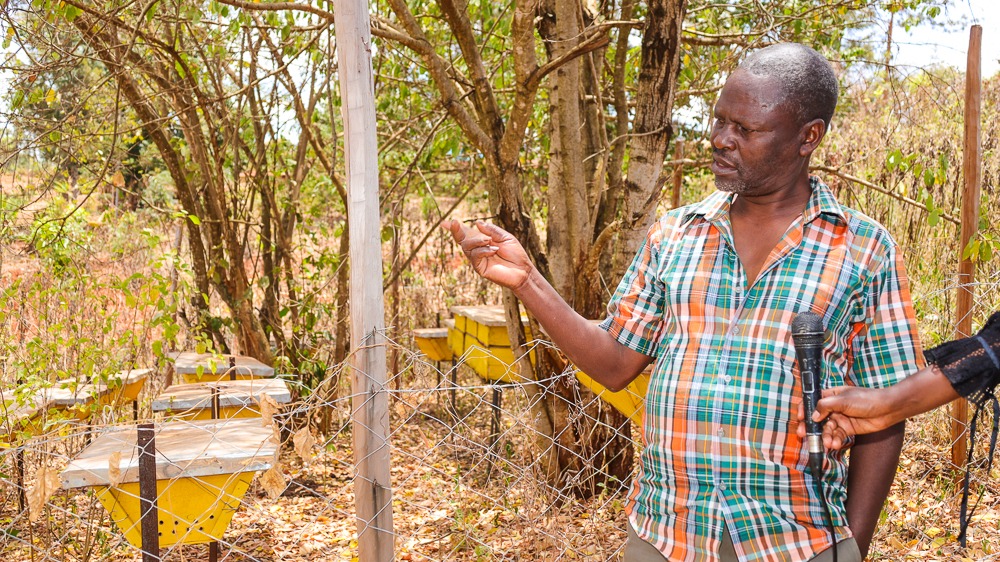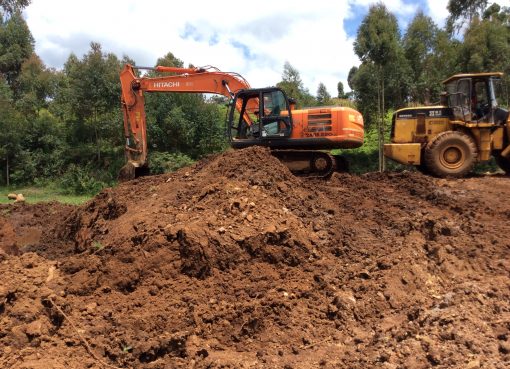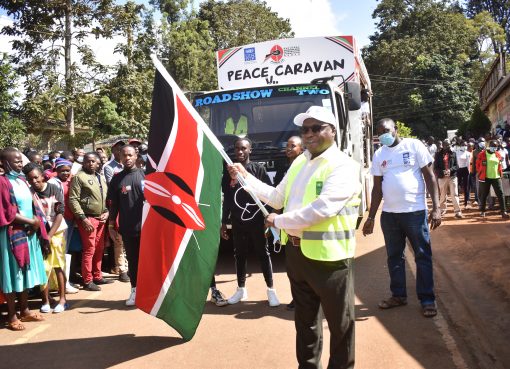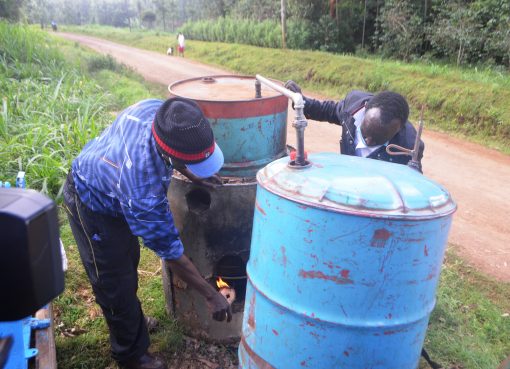Kirinyaga farmers engaging in commercial beekeeping under the county government’s support have started reaping big rewards from the venture.
The initiative is part of the Wezesha Kirinyaga economic empowerment programme, which has enabled farmers to diversify their agricultural activities to increase their incomes.
Governor Waiguru says the project was informed by the huge deficit in meeting demand for honey both in the county and the country at large, noting that there has been widespread awareness about the health benefits of consuming honey.
“This project sought to harness beekeeping by supporting the farmers to exploit the untapped potential in apiculture,” said the governor.
She noted that some of the advantages of beekeeping are that it requires less land, making it suitable for youth and women, and also requires little capital since one can start with as few as two hives. One can also use land that is not suitable for tilling.
Waiguru noted that beekeeping also contributes to the quantity and quality of crop production through pollination.
This year, the county will support an additional 26 groups by providing bee hives as well as honey harvesting kits to boost the programme.
Kanjikomu Self-Help Group, located in Kabare Ward in Gichugu constituency, is one of the first groups to receive some 24 bee hives and two honey harvesting kits through Governor Waiguru’s Wezesha project and is now reaping big as its 24 members make fortunes from the honey business.
The group has harvested over 200 kilogrammes, which is estimated to earn Sh200, 000, and is planning to start packaging its own product as a self-help group.
Kanjikomu Group Chairman Evans Kabutu said the farmers harvested an average of about 11 kilogrammes of honey from each of the 18 colonised beehives. The unprocessed honey was bought at Sh1,000 per kilogramme.
“We have seen the benefit of beekeeping; the demand for pure honey is so huge that we cannot meet it. We sold the first harvest to an Israeli national whom we got through social media,” he said.
Kabutu says the group members have no regrets about venturing into beekeeping because, unlike other forms of farming, it is less capital intensive and less involving.
“Bees get their own food and reproduce well under the right conditions; hence, they do not need a lot of attention. After building a structure for the bees to inhabit, you just have to give it time, and then you can harvest your honey for sale,” Kabutu said.
Utheri Wa Ngondo Community Based Organisation (CBO) from Kangai ward in Mwea is another group of farmers who have benefited from county government support.
Vice Chairman Gerald Muriithi says the group started as a table banking initiative but later ventured into beekeeping and acquired the first 10 beehives. It was supplied with 24 more from the county government after being taken through training on beekeeping.
“We have harvested several times, and our profit keeps on rising. The demand for honey is huge, and once we sell, the money is shared equally among members. We are grateful for the initiative by Governor Waiguru,” said Muriithi.
Currently, there are about 13,000 bee hives in Kirinyaga County, which include longs troth, Kenya top-bar bee hives, and traditional log hives, which all produce about 359 tonnes of honey per year.
By Mutai Kipngetich





